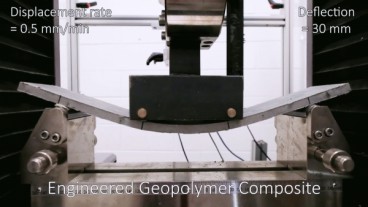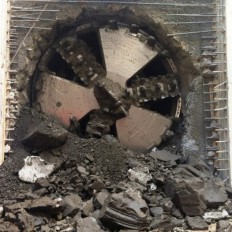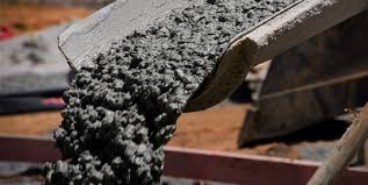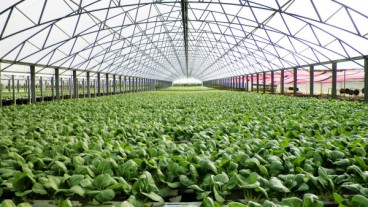UK’s National Grid completed a record-breaking cement-free concrete pour

The United Kingdom’s National Grid, along with its contractor, recently completed the world’s largest continuous Earth Friendly Concrete pour.
The project aimed at filling the base of a 55-meter-deep tunnel drive shaft at Hurst Substation in South London by pouring 736 cubic meters of cement-free concrete.
The innovative cement-free concrete, developed by Wagners, is made of a binder that consists of ground granulated blast furnace slag and pulverized fly ash, chemically activated by industrial waste products.
This product reduces carbon emissions by 64% by not using cement, which requires a great amount of energy to be produced. The 64% saving translates to a 111kg of CO2 reduction per cubic meter compared to conventional concrete.
Earth Friendly Concrete was extensively tested prior to the record braking pour, which took place on Earth Day, April 22. More specifically, the material was used and tested in the £1bn London Power Tunnels project.
This is just one of the methods implemented by National Grid to achieve its net zero emission plans by 2025/2026.
Finally, it is worth mentioning that the 736 cubic meters poured in this instance are estimated to have saved 82 tons of CO2 emissions, equivalent to a car driving around the world 18 times.
Sources: www.nationalgrid.com, tunnellingjournal.com
Want to read more like this story?

Scientists produce high bending capacity concrete using no cement
Mar, 11, 2020 | NewsScientists from Swinburne University in Melbourne, Australia, have created a new concrete material t...

The Fehmarnbelt Tunnel’s Pushes Forward with Low-Carbon Engineering
Nov, 20, 2024 | NewsThe Fehmarnbelt tunnel project is at the forefront of sustainable engineering with its trial of CO2...
The world’s first carbon concrete building constructed by researchers in Germany
Nov, 17, 2022 | NewsThe first building made of carbon-reinforced concrete was inaugurated in September after two and a...

Processed spent coffee grounds can enhance concrete strength
Nov, 20, 2023 | NewsResearchers at the Royal Melbourne Institute of Technology (RMIT) have recently published a paper w...

Largest 3D printed building in Europe constructed in Heidelberg, Germany
Jul, 31, 2023 | NewsConstruction of Europe’s largest 3D printed building in Heidelberg, Germany started on March 31 and...

London Power Tunnels, UK: TBM Evelyn sets a new record in tunneling
Feb, 16, 2015 | NewsTBM Evelyn has set a new project record at National Grid's London Power Tunnels project, digging 55....

What about recycled concrete?
Feb, 01, 2016 | NewsA group of scientists examines the possibility of using materials from demolitions for the construct...
Less concrete in building design with the aid of AI
Sep, 13, 2023 | NewsConcrete is one of the most widely used construction materials worldwide. The concrete industry con...

Cementing Green Change: North Wales to Host First CCS Cement Facility
Apr, 25, 2025 | NewsThe UK has taken a major leap toward industrial decarbonisation with the approval of its first carb...
Trending

Vertical gardens in Mexico City to combat pollution

Saudi Park Closed After 360 Big Pendulum Ride Crashes to Ground, 23 injured

Characteristics of Load Bearing Masonry Construction

Taipei 101’s impressive tuned mass damper

Dutch greenhouses have revolutionized modern farming

Federal court rules Biden’s offshore drilling ban unlawful


